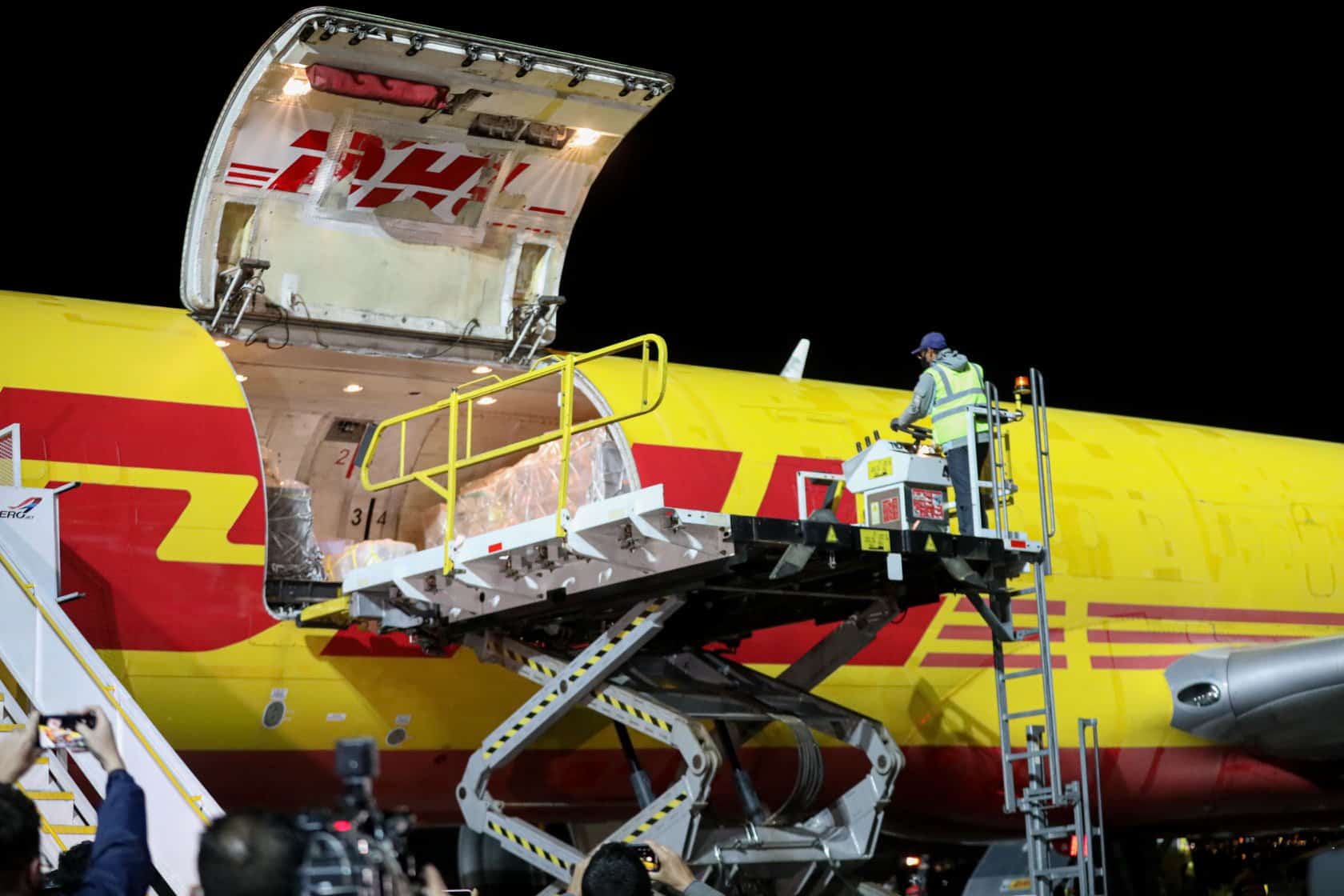Costa Rica last week received 851,190 more Covid-19 vaccines that were donated and purchased from Pfizer/BioNTech or AstraZeneca, authorities reported.
It’s the largest single-week total since Costa Rica first began receiving doses last December.
The first shipment, 204,000 doses from AstraZeneca, arrived at Juan Santamaría International Airport last Wednesday night. Pfizer delivered its doses late Thursday, and Costa Rica later received donations from Spain (69,600) and Canada (319,200).
As of Monday morning, Costa Rica has received 5.9 million Covid-19 vaccine doses, more than the country’s population. The majority came through purchases, with 891,900 having been donated by the United States, Canada and Spain.
In total, Costa Rica has purchased more than 9 million doses from Pfizer, AstraZeneca and through the Covax facility. It is negotiating an additional purchase in order to vaccinate children and offer booster shots in 2022.
Costa Rica has administered 4.28 million doses across 3.05 million people as of August 30. All citizens and residents ages 20 and older are eligible for their first dose; teenagers and younger adults with medical conditions that amplify their Covid-19 risk are also eligible.
Individuals between 30 and 57 years old are eligible for their second dose before their previously scheduled date:
 Serious side effects associated with Covid vaccines continue to be exceedingly rare.
Serious side effects associated with Covid vaccines continue to be exceedingly rare.
Who can get vaccinated in Costa Rica?
The following citizens and residents are eligible for a Covid-19 vaccine in Costa Rica:
- Group 1: Staff and residents at retirement or nursing homes. First responders, including health personnel.
- Group 2: Costa Rica’s older population, defined here as those ages 58 and up.
- Group 3: People from 18-58 with risk factors, including hypertension, diabetes, heart disease, respiratory illness, kidney disease and obesity, among others.
- Group 4: Teachers and other staff within the Education Ministry (MEP) or private schools. Imprisoned people and judicial staff. Workers for the 911 service.
- Group 5: People ages 20-57 without any of the aforementioned risk factors. Some locations are vaccinating younger adults and teenagers.
Individuals should bring their identification document (cedula or DIMEX). The vaccine is free, even for those who don’t pay into the Caja. Doses are not widely available to tourists at this time, though some locations may offer vaccinations to anyone, regardless of residency status.
Where to get vaccinated in Costa Rica
Each of Costa Rica’s hundreds of public clinics (EBAIS) manages vaccines within its area. Individuals who are eligible for a vaccine can contact their local EBAIS to schedule their first dose. Many other locations are hosting mass-vaccination campaigns.
- For a full list of these mass vaccination sites across Costa Rica, click here. (Link downloads as a .zip file.)
Official Costa Rica Covid sources
Here at The Tico Times, we do our best to share the most relevant coronavirus information in a clear and concise manner.
As you’re navigating the pandemic and the associated ever-changing rules, here are the official sources for Covid-19 information in Costa Rica:
- For driving and business restrictions
- For daily coronavirus case/hospitalization/death counts
- For tourist entry requirements
- For vaccine eligibility by location
- For vaccine shipments
Costa Rica’s official language is Spanish, so all of the above sources will be in that language. Of course, we at The Tico Times will continue to provide timely, accurate information as it develops.
Thanks for reading!






